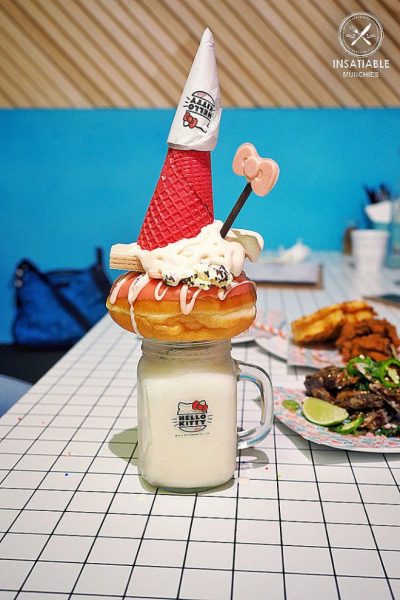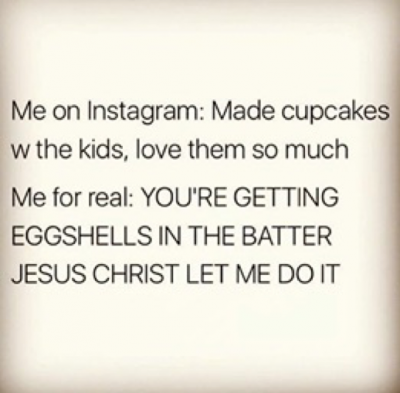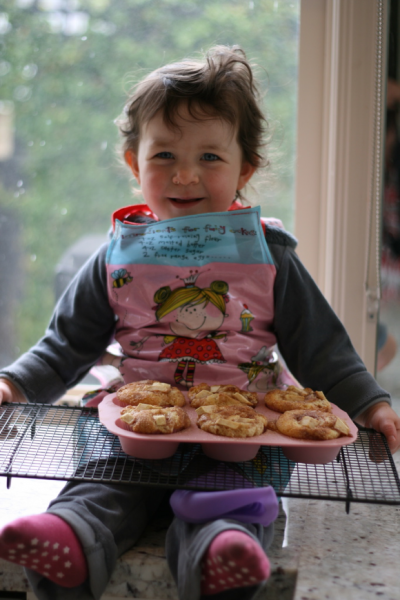Do you know that there are over 14 million photos on Instagram with the hashtag #cupcake? And just like freakshakes , what most of these cupcakes taste like is usually besides the point, as it’s all about the way they Instagram, Snapchat or hashtag.
Photo by Insataible Munch (Flickr) Side note: Does anyone actually eat these freak shakes?
Like many people, I have been known to get lost down the rabbit hole of my Instagram feed, gazing longingly at these gorgeous cupcakes and trying desperately to channel my inner Martha Stewart. Yet, I am enough of a pessimist realist to know that there is a major disconnect between Instagram Food and the actual reality behind said food.
“Instagram food is almost always something to be obtained, rather than cooked or created. It’s elusive and aspirational, something instantly recognizable yet only minimally available, the product of a long line (a ramen burger or matcha croissant) or a trans-continental flight (going all the way to Tokyo for a Gudetama waffle). Its appearance in your timeline signals status: You went to the place. You got the thing. You’re the kind of person who lives that kind of life.” ~ Amanda Mull
The rise of social media has correlated with this rise of beautiful-looking meals and food trends, which has got everything to do with the way the food photographs, and absolutely nothing to do with eating the food or how it is savoured and enjoyed as part of normal social eating.
Now don’t get me wrong, I am a big fan of gawking at things like sushi doughnuts and other novel food ideas, and I love nothing more than gazing at too-good-to-eat food images, whilst I imagine myself in a gourmet kitchen making cupcakes with my kids where I don’t swear and the batter doesn’t splatter all over the kitchen walls.
But my concern with ‘Instagram Food’ is that it promotes a lot of juice cleanses, superfood diets and food that is so #clean, it doesn’t even taste of anything, but looks amazing when photographed.
This cult of Instagram Food is largely led by celebrity wellness gurus, whose feeds are filled with beautifully styled food (and often slim-looking bodies standing aside such glorious food). There is a certain “smugness” that comes with the sharing of diet trends and #cleaneating hashtags on social media. This growth in Instagram Food does make me wonder what impact this is having on people with food-related anxiety issues. I am referring to the community of thousands of ordinary people who believe that by following the (mostly) unsubstantiated advice of these wellness influencers, they too can lead lives that appear so colourful and glamorous , and overcome any health or body dissatisfaction issues by trying to emulate these perfect lives that appear in their newsfeeds.
Yes like many other industries, Instagram Food is often far from reality. A recent experiment showed just how easy it is to create a fake Instagram account and become a paid influencer. And in a world where food and nutrition too often collide with mental health and eating disorders, the danger is that Instagram Food is playing a big role in feeding (pun intended!) these disorders and therefore may have a far more significant impact than simply brands throwing advertising money at fake Instagram accounts.
Many of these wellness gurus are well-respected influencers within their community. Yet their community are often the vulnerable ones who are most susceptible for not seeing the wood from the trees (or in this case not seeing the real eating that takes place in the messy kitchen and is far from anything #clean!) These wellness gurus can say what they like and share what they like with no regulation at all. And yet there is often a far greater level of trust placed in these influencers, often much more than any university-qualified nutrition professional.
The good news is that we are starting to see some signs (albeit on a small scale) that the #cleaneating tide is starting to turn. As people become more sceptical of the advice from wellness gurus and the associated Instagram Food, they will hopefully turn to qualified dietitians and nutritionists, who can help them achieve true health and wellness; that is a life filled with messy kitchens, real food and cupcakes baked with the most important people.
Baking cupcakes with my daughter when she was 3 years old. Can you spot the batter on her nose? And the photo hides the big mess we made together!



